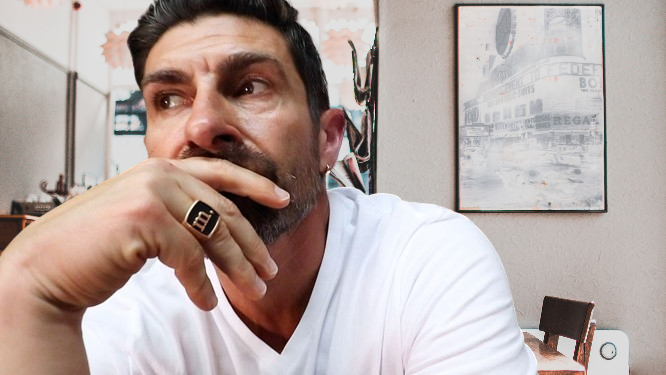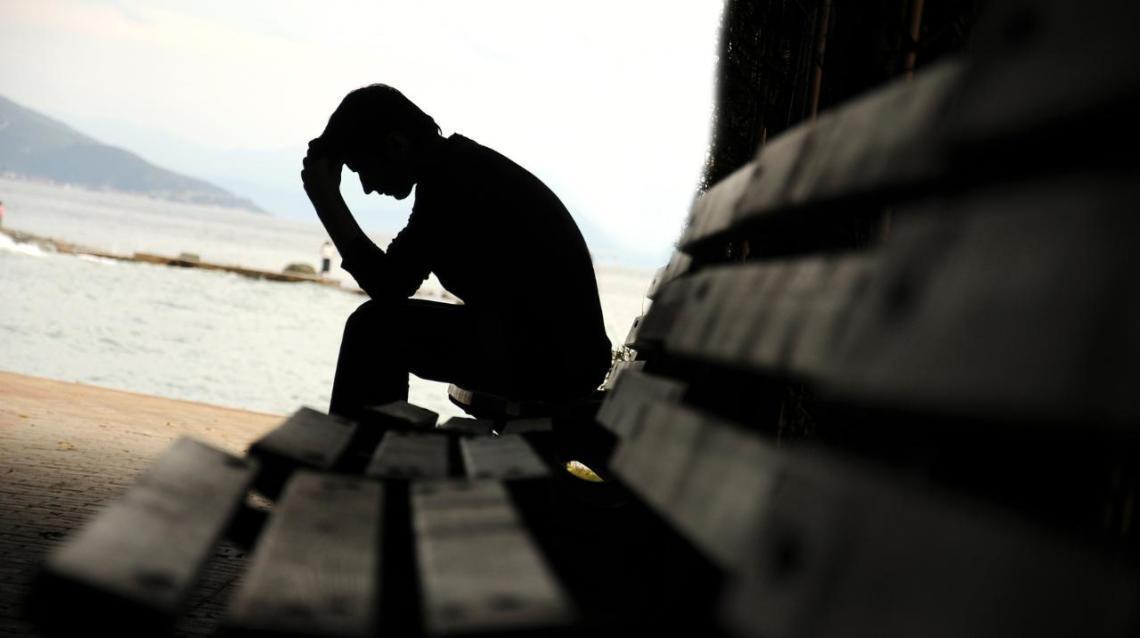Fear and anxiety may be one of the most significant and widely shared masculine taboos. Openly fearful men can be viewed with scorn — not as a ‘real’ man. Men will then eat that fear and push it down. In some ways, this is a way for some of us to take risks. But for others, it’s a way of perpetuating gender norms (men have to suck down their emotions). Expressing fear and anxiety can feel risky for men.
Some of us are more cautious than others. Some are more fearful and driven by anxiety. Perhaps this anxiety came from trauma, or we are just built that way. Intrusive thoughts can run through the mind, and anxious thoughts about the future can be all-consuming.
Fear is humanizing, and I suspect that’s why it’s not societally allowable as an emotion for men. Acknowledging fear and anxiety means that men acknowledge they are human, with a human amount of agency. They admit they aren’t emotional rocks or superheroes, ready to sacrifice in the face of danger. Men believe they will lose their ‘usefulness’ because they think that a man must always have a purpose or else he’s not a man.

Men are often called to be more vulnerable — but in a wholesome and single-tear way — like telling your male friend that you love him or instructing your son how not to be scared because you overcame the same fear. Real vulnerability can be raw, ugly, unattractive, and laborious. Real vulnerability is fear.
But there’s a caveat here — the relationship between vulnerability and insecurity. The predominant difference is that both describe emotional openness, but insecurity adds the quality of being in a weak state or struggling. Vulnerability doesn’t indicate distress, so insecurity is where the lack of acceptance of men admitting fear and anxiety (aka being vulnerable) comes into play.
So, you have a choice to make. Are you going to live boldly and courageously, or are you going to play it safe? If you expect to live an extraordinary life, you have to be willing to push down fear and take risks.

Take chances to create an extraordinary life, such as getting into the habit of saying ‘yes.’ We get comfortable and complacent, and then when somebody asks us to do something or we’re given an opportunity, our knee-jerk reaction is to say ‘no.’ Saying ‘yes’ will expose you to new experiences, people, and opportunities.
But on the other hand, you need to learn to say ‘no.’ You need to say ‘no’ to people you shouldn’t be saying ‘yes’ to. There’s nothing wrong with wanting to make somebody happy or like you, but if you do it to the detriment of yourself, time, spirit, or integrity, you must say ‘no.’ Saying ‘no’ is risky because you may lose friends.
But losing toxic friends is definitely a risk you need to take, although it may be difficult or scary to remove yourself from their lives. People in your life should be good for you, bringing you joy and fulfillment and lifting you up. If someone is tearing you down or making you feel worse, eliminate them — this includes splitting from a relationship. Have those uncomfortable conversations.
Another fear to face is to go ahead and ask. Whether asking for a promotion, raise, or discount at a point of sale or asking her on a date, stop worrying about the worst-case scenario. Think about what will happen if they say ‘yes.’

And above all else, don’t be fearful of being yourself. Invest in yourself by working out, caring for yourself, and dressing purposefully. Go travel. Expand your horizons, see different people and places, and experience other cultures. Reinvent yourself. Realize that nothing great was ever accomplished because it was easy. The bigger the risk, the bigger the reward. Step outside of your comfort zone and take a shot. Sometimes, it won’t work out, but reinventing yourself can lead to bigger and better things.
Reconciling fear with being a man and viewing it as anything other than an embarrassing personal weakness can take time. It is deeply messed up what toxic masculinity can do to men. Ironically, fear itself shapes much of toxic masculinity. Men are afraid to be viewed as not manly enough, to be perceived as less than, or to be associated with characteristics not related to being masculine (awkward, effeminate).
By processing the fear, it no longer controls you. Some men ignore the fear and don’t express their emotions, thinking they’re supposed to blast into any situation and blow away problems. But once you let go of this idea of masculinity and face your fears, you can take risks and lead the extraordinary life you deserve.













